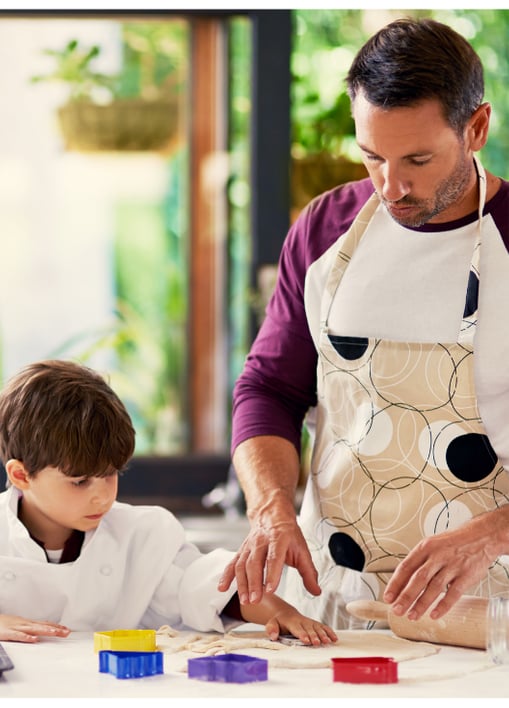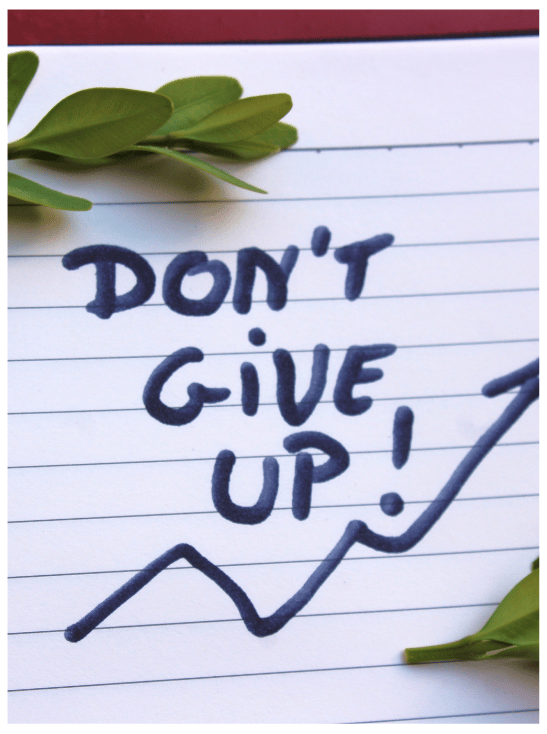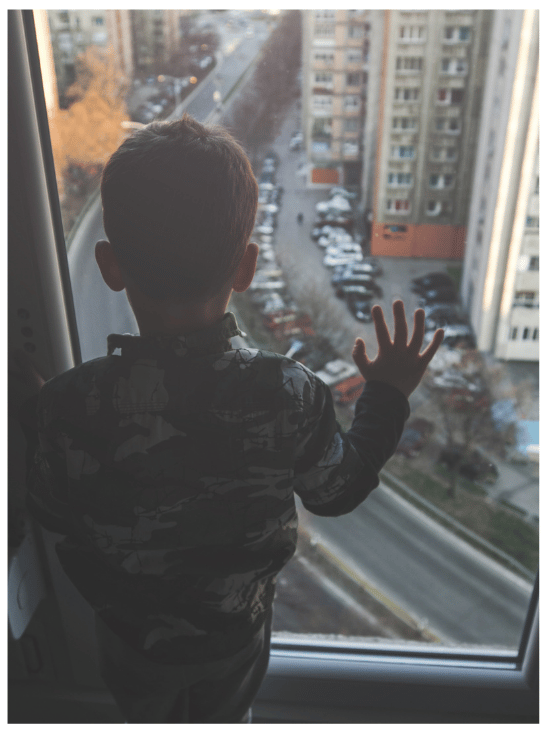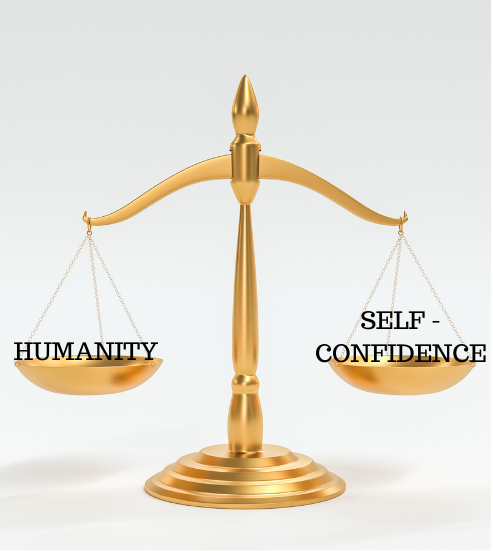21 Life Truths I Wish My Parents Had Told Me
Blog post description.
12/1/202420 min read


21 Life Truths I Wish My Parents Had Told Me
Expect Not: A Lesson for Inner Peace
One of the most valuable lessons I’ve learned is this: Expect not, and you will find peace.
As children, we often form silent expectations—of people, situations, and life. When these aren’t met, disappointment follows. No one told me that much of this pain could be avoided by simply letting go of expectations.
I learned this lesson the hard way, often feeling hurt when my efforts weren’t acknowledged or reciprocated. Over time, I realized the freedom in acting without strings attached—giving for the joy of giving, helping without seeking favor. Each time I released expectations, I felt lighter and more at peace.
This is a lesson I now share with my children: “Do things because they feel right, not for applause or validation.” When joy comes from within, no unmet expectation can take it away.
Teach your children to let go of expectations, and they’ll discover the quiet strength to embrace life’s surprises with peace and gratitude. Expect not, and life will unfold beautifully.


Knowledge Applied Is True Knowledge
Growing up, I believed that knowing facts and theories was enough. But over time, I realized that knowledge unpracticed is like a seed never planted—it holds potential but bears no fruit.
True learning happens when we apply what we know. I recall meeting a farmer who, with little formal education, could read the soil, predict rain, and grow food that nourished many. He once said, “What good is knowing how to plant if you never grow anything?” That wisdom reshaped my understanding of knowledge—it gains meaning only when it serves a purpose.
With my children, I encourage them to ask, “How can I use this?” Learning isn’t about hoarding information; it’s about transforming it into action. When we use knowledge to solve problems, create beauty, or help others, it turns into wisdom.
Let’s teach our children that the purpose of learning is not to impress but to impact. Ask them, “How will you use this to make a difference?” In that question lies the key to turning knowledge into something truly meaningful.
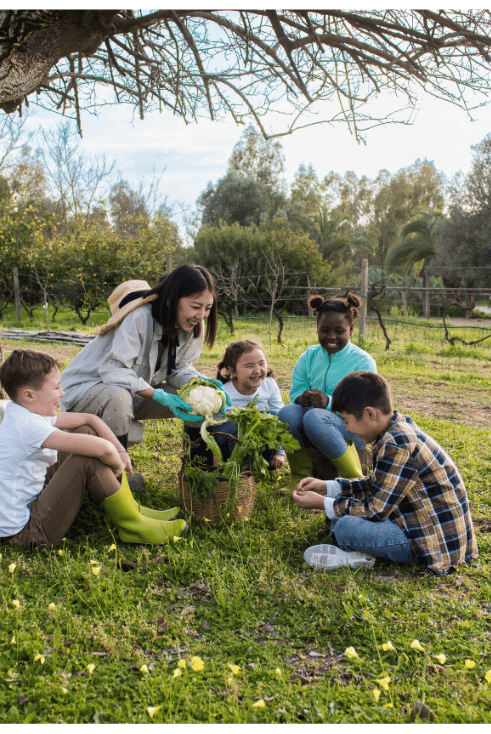



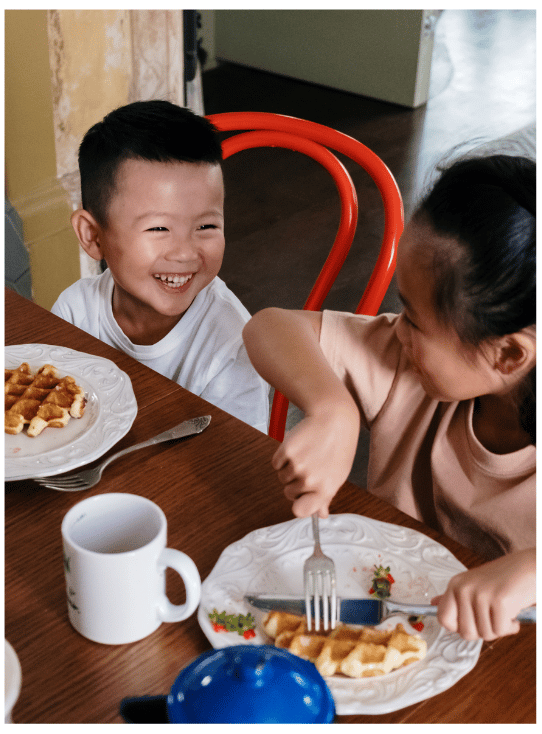

The Only Freedom Is the Freedom to Do What’s Right
Growing up, I thought freedom meant living without rules. I believed it was about doing whatever I wanted, whenever I wanted. But life taught me that true freedom isn’t the absence of boundaries—it’s the strength and wisdom to choose what’s right, even when it’s difficult.
As a child, I often questioned my parents’ rules. “Why can’t I stay out late? Why can’t I skip my homework?” Their answers felt restrictive, and I didn’t realize they were teaching me something deeper: freedom isn’t a free pass to follow impulses but a responsibility to act with intention.
When I made choices based only on what felt good, I often ended up with regrets. Over time, I discovered that acting on fleeting desires traps you in cycles of consequence while choosing what’s right sets you free.
Like a river that flows freely within its banks, we are truly free only when our actions are guided by purpose and integrity. Without direction, freedom can lead to chaos, but with clarity, it brings peace and fulfillment.
As parents, we can nurture this understanding in our children. Instead of enforcing rules without explanation, we can ask, “What do you think is the right thing to do?” This helps them reflect and grow into individuals who find pride in making good decisions.
True freedom empowers us to act with kindness, stand for what is right, and live a life aligned with our values. Let’s teach our children that the greatest freedom isn’t about avoiding limits—it’s about embracing the courage to live with purpose and truth.
Travel Light
How I wish my parents had taught me this: Life is lighter and brighter when you let go of what you don’t need. Growing up, I believed happiness came from accumulating—possessions, achievements, relationships, even approval from others. But the more I gathered, the heavier life felt. Only with time did I understand the peace of shedding what doesn’t serve us and moving forward unburdened.
Picture walking through a forest. Carry only what you need—a bottle of water, a snack—and you can enjoy the journey. But overload your backpack with unnecessary things, and every step becomes a struggle. Life is the same. The less baggage we carry, the more we can truly live.
Traveling light isn’t just about material things; it’s about releasing emotional weight too. Let go of grudges, fears, and unrealistic expectations. Teach your children that the newest gadgets or the approval of others won’t make them worthy. Help them value experiences over possessions, authenticity over appearances.
I once packed everything for a family trip, worried we might need it all. The result? Exhaustion from carrying too much—and we didn’t use half of it. That trip taught me: most of what we cling to is “just in case,” when all we really need is trust in ourselves to handle whatever comes.
Traveling light means trusting you are enough without the excess. A child who learns this grows free to explore, unburdened by fear or comparison. Let’s teach our children to ask: Do I really need this? Will it add to my life or weigh me down?
Life isn’t about how much you carry; it’s about how far you can go. And when you travel light, every step feels freer, and the journey itself becomes the reward.


If You Do Not Get What You Love, Love What You Get
How I wish my parents had taught me this truth: Life doesn’t always give you what you dream of, but joy can still be found in loving what you have.
As a child, I often yearned for things just out of reach—a toy, a vacation, or recognition. Even when I got them, the happiness was fleeting, and the cycle of wanting began again. No one told me that true happiness lies not in getting everything you want, but in wanting and appreciating what you already have.
I remember when my son didn’t make the team he’d been dreaming about. He was heartbroken. “I really wanted this,” he said. I hugged him and said, “I know it hurts. But maybe there’s something else waiting for you—something you might grow to love just as much.” A few months later, he discovered his passion for art, something that brought him even more joy.
This taught me an important lesson: Life’s detours often lead us to unexpected blessings. Loving what you get isn’t about settling—it’s about finding beauty in the present and embracing the gifts hidden in the unexpected.
Teaching this to children builds resilience. They learn that life’s twists aren’t the end of the road but opportunities to grow and explore. Encourage them to ask: What can I love about this moment?
Life isn’t about chasing perfection. It’s about cherishing the imperfect, loving the present, and trusting in the magic of life’s surprises.
Passion Is the Secret Code to Success
How I wish my parents had told me: Passion is what turns effort into joy and challenges into opportunities. They spoke of hard work and discipline, but they didn’t stress the magic of loving what you do—the energy that makes the journey exciting, not just the destination rewarding.
Growing up, I followed expectations, met goals, and checked boxes. Yet, without passion, my achievements felt hollow. It wasn’t until I discovered my love for writing that life took on new meaning. Suddenly, hard work felt purposeful, and obstacles became part of an exciting journey.
I saw the same spark in my son when he found his passion for music. Practicing for hours wasn’t a chore; it was a joy. His passion gave him resilience, making every challenge an opportunity to grow.
Passion doesn’t guarantee an easy path, but it makes every step worthwhile. It fuels perseverance, making setbacks feel like lessons rather than failures. That’s the power of doing what you love.
As parents, we often focus on effort and achievement. But perhaps the most important lesson is this: Find what makes your heart race and pour yourself into it. Success isn’t just about reaching goals—it’s about loving the process of getting there.
Passion doesn’t always appear in an instant; it can grow quietly. Encourage your children to explore, experiment, and follow their curiosity. Sometimes, all it takes is a spark to ignite a lifelong flame.
The world is full of hardworking people, but those who truly excel are driven by passion. Let’s teach our children this secret code to a fulfilling and meaningful life: Discover what sets your soul on fire, and success will naturally follow.
Passion Is the Secret Code to Success
How I wish my parents had told me: Passion is what turns effort into joy and challenges into opportunities. They spoke of hard work and discipline, but they didn’t stress the magic of loving what you do—the energy that makes the journey exciting, not just the destination rewarding.
Growing up, I followed expectations, met goals, and checked boxes. Yet, without passion, my achievements felt hollow. It wasn’t until I discovered my love for writing that life took on new meaning. Suddenly, hard work felt purposeful, and obstacles became part of an exciting journey.
I saw the same spark in my son when he found his passion for music. Practicing for hours wasn’t a chore; it was a joy. His passion gave him resilience, making every challenge an opportunity to grow.
Passion doesn’t guarantee an easy path, but it makes every step worthwhile. It fuels perseverance, making setbacks feel like lessons rather than failures. That’s the power of doing what you love.
As parents, we often focus on effort and achievement. But perhaps the most important lesson is this: Find what makes your heart race and pour yourself into it. Success isn’t just about reaching goals—it’s about loving the process of getting there.
Passion doesn’t always appear in an instant; it can grow quietly. Encourage your children to explore, experiment, and follow their curiosity. Sometimes, all it takes is a spark to ignite a lifelong flame.
The world is full of hardworking people, but those who truly excel are driven by passion. Let’s teach our children this secret code to a fulfilling and meaningful life: Discover what sets your soul on fire, and success will naturally follow.
More and More of Less and Less
How I wish my parents had taught me this truth: True joy isn’t about having more but needing less. Desires are endless, whispering promises of happiness just out of reach. The more we chase them, the farther we drift from peace.
Growing up, I believed that success and happiness came from achieving and acquiring more. A better grade, a better job, a better home—another replaced each desire I fulfilled. But no one told me this cycle doesn’t bring contentment—it brings exhaustion.
Desires are like a bucket with a hole; no matter how much you pour in, it never fills. Measuring happiness by what we lack blinds us to the abundance already around us.
In today’s world, "more" is the mantra—more possessions, achievements, and recognition. Yet true fulfillment lies in simplicity. The happiest people aren’t those with the most, but those who find joy in the little things and live with gratitude.
I remember a friend who embraced minimalism. His home was modest, his possessions few, but his heart was full. “The fewer desires I have,” he said, “the lighter I feel.”
As parents, we can teach our children this wisdom. Life isn’t about collecting things—it’s about collecting meaningful moments and relationships. Show them the beauty of needing less, appreciating more, and valuing what truly matters.
We make space for peace and contentment when we free ourselves from endless desires. Let’s remind our children: You already have enough. You already are enough. True abundance comes from appreciating what you have and finding joy in simplicity.
Live Like Lions, Not Like Sheep
How I wish my parents had taught me to live boldly, with courage, and follow my own path instead of blending in. Living like a lion means living with purpose and confidence, while living like a sheep means merely existing and avoiding standing out.
As a child, I often played it safe, following the crowd. But I soon realized that living like a sheep felt empty. Lions, on the other hand, live authentically, unafraid to be themselves and follow their own instincts.
I remember a pivotal moment in my career when I had to choose between a safe path and one that aligned with my dreams. I chose to follow the lion’s spirit, and though it was challenging, it was deeply fulfilling. I wasn’t just surviving—I was living.
As parents, we can nurture the lion in our children by encouraging them to trust their instincts, stand up for what’s right, and be true to themselves. Living like a lion isn’t about arrogance—it’s about living with integrity and purpose. Teach your children to dream big, take risks, and lead with their hearts.
When in Doubt, Refer to the Heart
How I wish I had learned that, when in doubt, the heart often knows best. Growing up, I was taught to rely on logic and reason, but I came to realize that there are moments when the heart’s wisdom speaks louder than the mind’s analysis.
I remember a time when I had to choose between two opportunities: one logical, the other one that stirred something within me. My mind leaned toward the logical choice, but my heart whispered otherwise. Trusting it led me to growth and fulfillment.
The heart aligns us with our values, passions, and inner truth. As parents, we can teach our children to listen to their heart, especially when the mind is clouded with doubt. In those moments, the heart becomes a compass, guiding them toward clarity and confidence.
So, when in doubt, encourage your child to listen not just to reason but to their heart. The heart might not offer the easiest path, but it will lead to what feels right.
Destiny Is Not Fixed—We Create It Moment by Moment
How I wish someone had told me that destiny isn’t a prewritten script. It’s the masterpiece we create through every choice and action. I used to believe that life’s course was determined by fate, but I now know that we are the creators of our destiny.
Life is a canvas, and each decision is a brushstroke. We shape our destiny through the choices we make—whether to act with kindness, perseverance, or courage. One woman I know defied the “destiny” others saw for her. Despite being told she’d never amount to much, she pursued her dreams and created the life she envisioned.
As parents, we can teach our children that their destiny isn’t determined by others or fate. It’s about aligning who they are with who they want to become. Destiny isn’t about luck; it’s about the choices they make every day.
Help your children understand that their future is in their hands. It’s not written in the stars—it’s shaped by their actions, moment by moment.
Live Simple and in Tune with Nature
I wish my parents had taught me that life doesn’t need to be complicated to be fulfilling. In a world obsessed with excess, simplicity holds the key to peace. Living simply means finding joy in what matters and letting go of what doesn’t.
Nature teaches us this lesson every day. A tree grows without hurry, a river flows with ease, and the sun rises without fanfare. In their simplicity, they fulfill their purpose.
When my children were young, we spent weekends hiking in nature, away from gadgets and schedules. My son once said, "Why can't every day feel like this?" It reminded me that we complicate life by adding more when less is enough.
Living simply means aligning with what feels natural—nourishing food, meaningful work, and moments over things. Nature shows us that abundance comes from appreciating what we already have.
As parents, we can teach our children the gift of simplicity. Even small moments in nature—like walks or stargazing—can offer more peace than any material possession.
Live simply, live in tune with nature, and pass this gift to your children.
Ego Is Good, But It Should Be Refined
As a child, I often wrestled with this delicate balance. Sometimes, I’d shrink myself to avoid being seen as arrogant, suppressing my talents or opinions out of fear. Other times, I’d let my ego roar, dismissing others' perspectives and inflating my own importance. Neither extreme felt right. I wish someone had told me early on that ego isn’t something to suppress—it’s something to shape, to channel wisely.
Ego is like fire. Left unchecked, it burns wildly, consuming and destroying everything in its path. But when controlled, it becomes a source of warmth, light, and purpose. A refined ego doesn’t shout, “I’m better than you!” It quietly affirms, “I know who I am, and I respect who you are too.” It strikes a balance between self-assurance and humility.
As parents, helping our children navigate this balance is vital. Ego is a natural part of being human, but it needs nurturing, shaping, and guiding. They shouldn’t feel the need to hide their pride in who they are or what they can do. At the same time, they should understand that true confidence doesn’t come at the expense of others.
Ways to Teach a Refined Ego:
Encourage Self-Awareness: Teach children to recognize their strengths and acknowledge their limitations.
Model Humility: Show them how to value their achievements without arrogance.
Promote Empathy: Help them understand that others’ successes don’t diminish their own.
Foster Gratitude: Remind them to be thankful for their gifts and opportunities, reinforcing a mindset of appreciation.
Think of the ego as a sculptor’s stone. It’s raw, full of potential, and waiting to be chiseled into something extraordinary. When we refine the ego—through humility, empathy, and self-awareness—it becomes a guiding light, not a blinding one.
Money Isn’t Our Enemy
Growing up, money seemed like a double-edged sword. It was necessary for survival, yet often spoken of as the root of greed, conflict, and unhappiness. I wish someone had told me the truth: Money isn’t our enemy—it’s a tool, neutral in itself, waiting to be used wisely.
Money doesn’t define who we are; it reflects us. If we are kind, compassionate, and grounded, money amplifies those traits. If we’re driven by fear or selfishness, it magnifies those instead. The problem isn’t money but the mindset we attach to it.
For years, I grappled with guilt over wanting financial stability. Was it wrong to want more? Would it make me less spiritual or less grounded? Slowly, I learned that money isn’t about greed—it’s about freedom. It allows us to care for our loved ones, pursue our dreams, and make meaningful contributions. It’s a tool for empowerment, not a symbol of greed.
Teach your children to view money as a resource, not a measure of self-worth. Show them the balance—how to earn it ethically, spend it mindfully, and share it generously. Help them understand that money doesn’t buy happiness, but it can amplify purpose when used with intention.
I once read about a teacher who used her earnings to build schools and provide books for underprivileged children. Her story opened my eyes to the power of money as a force for good. It’s not about the wealth itself, but how we use it.
When we stop fearing or demonizing money, we change the narrative. It becomes a partner, not a burden—a means to build a life of purpose, compassion, and abundance. Pass this wisdom to your children, and they’ll grow up understanding that money isn’t the enemy but a tool to contribute meaningfully to the world.
It’s Not About Perfect, It’s About Effort
Perfection is a trap, a mirage that whispers we’re never good enough. It convinces us that unless something is flawless, it’s not worth celebrating. But perfection is an illusion—a finish line that keeps moving further away. Effort, on the other hand, is real. It’s honest and powerful. It’s what keeps us going when the odds feel insurmountable.
I’ll never forget the day my son came home disappointed after presenting his school project. He’d poured hours into it, yet his grade wasn’t what he hoped for. “I didn’t do it perfectly,” he said, tears brimming. I held his shoulders and told him, “It’s not about perfect. It’s about how hard you tried—and you gave it your all. That’s what truly matters.”
Every great achievement begins with imperfect efforts. Behind every trophy, every success story, are countless failed attempts, messy drafts, and small steps that seemed insignificant at the time. When we shift our focus from perfection to effort, we stop fearing failure and start appreciating progress.
As parents, it’s easy to applaud results—a medal, a high score, a milestone. But imagine the impact if we celebrated effort instead: the late-night study sessions, the determination to try again, the perseverance in the face of setbacks. These are the moments that cultivate resilience and strength.
Life isn’t about never falling; it’s about how many times we rise again. Let’s teach our children—and remind ourselves—that effort is where the magic happens. Every attempt, no matter how small, is a step forward. Each stumble brings a lesson, and every moment of trying shapes us into who we are meant to become.
Perfection may look shiny, but it’s effort that lights the way to growth, progress, and fulfillment. Celebrate the effort, and the rest will follow.
The Power of Suggestions or Sankalpa
Every word we say to ourselves, every belief we hold, creates ripples within us. A sankalpa—a conscious intention—isn’t just a fleeting thought. It’s a seed planted in the fertile soil of the mind. What we nurture grows. When we constantly tell ourselves, “I can’t do this” or “I’m not good enough,” those seeds of doubt take root and become our reality. But when we affirm, “I am capable” or “I will succeed,” we plant seeds of strength and possibility that grow into confidence and success.
I’ve witnessed this power firsthand. A close friend of mine struggled with self-doubt in her career. Her thoughts were soaked in negativity: “I’ll never get that promotion. I’m not as smart as the others.” Over time, those beliefs became her truth. But when she consciously shifted her self-talk—repeating to herself, “I’m learning, I’m improving, and I can do this”—her confidence blossomed. Gradually, her reality followed. She received her promotion not just because of her skills but because she finally believed in herself.
As parents, we have a unique opportunity to shape the sankalpas of our children. Our words become their inner voice. Imagine the difference between saying, “You’re so clumsy” and “You’re learning and getting better every day.” One sows doubt, while the other nurtures growth.
How to Teach the Power of Sankalpa:
Encourage Positive Self-Talk: Teach your children to replace “I can’t” with “I’m learning.”
Model Empowering Language: Your words to them should reflect hope and belief.
Create a Habit of Affirmations: Begin or end the day by affirming strengths, like “I am kind, I am capable.”
Sankalpa is a gift we can give to our children and ourselves. Choose your thoughts and words wisely, for they are the seeds of the future you wish to create..
Life Isn’t a Race, It’s a Journey
If only I had known earlier that life isn’t a race but a journey, I might have lived more fully. Growing up, I felt constant pressure to keep up—to be faster, better, and ahead of everyone else. It was a relentless pursuit of milestones: grades, promotions, achievements. But now, as I look back, I realize how much of life I missed in the rush to get somewhere.
This understanding deepened when I became a parent. Watching my children grow at their own pace showed me that life unfolds in its own time. One child walked early; another took their time. Both moments were equally joyous. They didn’t need to compete—they simply followed their paths.
As adults, we often lose sight of this. We chase goals and compare ourselves to others, believing success means reaching the finish line first. But life isn’t about sprinting ahead. It’s about the lessons learned, the people we meet, and the small joys along the way.
How to Embrace the Journey:
Pause to Reflect: Take time to appreciate where you are instead of always looking ahead.
Celebrate Small Wins: Recognize progress, no matter how small.
Teach Children Patience: Help them understand that their journey is unique, and there’s no need to rush.
Success is not about who gets there first—it’s about the depth of the experience. Life is a series of moments, and the beauty lies in savoring each one.
Seek Joy, Not Pleasure
If only I had understood the difference between joy and pleasure sooner, I would have lived more intentionally.
Pleasure is fleeting—a quick burst of satisfaction. It’s the thrill of buying something new, the excitement of indulgence, or the instant gratification of a social media like. But it fades, leaving us hungry for more. Joy, however, is enduring. It’s the deep contentment that comes from within, unshaken by external circumstances.
For years, I chased pleasure: flashy gadgets, night-outs, applause from others. These moments felt good but left me empty afterward. Joy, I realized later, comes from the simpler, quieter moments: a heartfelt conversation, helping someone in need, or simply sitting still and feeling at peace.
How to Teach Children to Seek Joy:
Model Joyful Living: Show them the value of relationships, kindness, and purpose.
Teach Gratitude: Encourage them to notice and appreciate the small blessings in life.
Help Them Find Meaning: Guide them to pursue passions that bring lasting fulfillment, not just instant rewards.
The Genie Is in Us
How I wish my parents had told me this simple truth: the genie is within us. For many years, I believed that happiness, success, and fulfillment were things to chase outside of myself. I thought I needed to follow a certain path or live someone else's life to find the magic. But the secret was always inside me.
The genie isn’t in a bottle—it’s in our hearts, minds, and spirits. We have the power to create the life we desire by tapping into the strength and wisdom we already possess. Once I realized this, everything changed. I stopped looking outward for answers and started looking inward, trusting my own abilities and intuition. This shift made life unfold in unexpected and beautiful ways.
As parents, we can show our children that their greatest source of power lies within them. When they trust their inner strength, they’ll realize they can create their own magic.
So, remember, the genie is not out there waiting for you—look within, trust yourself, and start creating the life you’ve always wanted.
Nothing Wrong in Thinking Yourself Great, But Always Remember the Other Person Is Greater Than You
How I wish my parents had taught me the balance between self-confidence and humility. There’s nothing wrong with thinking of yourself as great, but it’s essential to remember that others are also great in their own ways. For a long time, I misunderstood success. I believed that being the best meant surpassing others, but over time, I realized that true greatness comes from lifting others up, not standing above them.
I had a moment at work where I was convinced I had all the answers, only to discover that one of my colleagues, whom I had overlooked, had the perfect solution. It was a humbling experience that taught me that greatness isn’t just within us—it’s all around us. When we recognize and appreciate the value in others, we grow in humility, compassion, and respect.
As parents, we can teach our children the importance of self-belief while showing them the beauty in recognizing and respecting the greatness of others. True greatness lies not in being above others, but in acknowledging their worth.
So, as you pursue your dreams, remember to lift others up along the way. When we see the greatness in others, we become greater ourselves.
Love Is the Answer
If only my parents had told me this earlier: love is the answer. Over the years, I’ve sought answers to life’s big questions—what is the meaning of success, happiness, or lasting relationships? But through it all, one truth has become clear: love is the answer to almost everything.
Love isn’t just a feeling; it’s a way of living. It’s the foundation of our relationships, the strength that helps us rise after setbacks, and the power to forgive. Love teaches us patience, empathy, and understanding. It holds families together, helps us heal, and gives us the courage to keep going in tough times.
As parents, we can teach our children that love is the most powerful force in life. It’s love that will guide them through challenges, help them build strong relationships, and create lasting happiness.
When we lead with love, everything else falls into place. So, let love be the answer in your life—it’s all we truly need.








